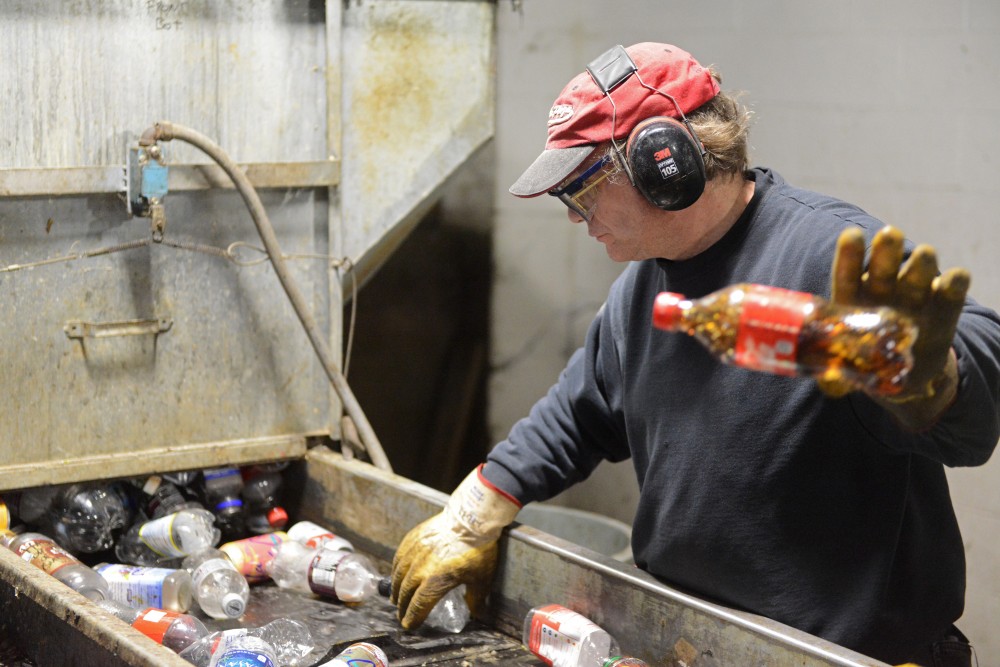A study published this month by University of Minnesota researchers identified methods to recycle certain molecules found in plastics.
The researchers spent about a year searching for ways to convert plastic materials back to their original molecules for reuse. While these findings could allow for more sustainable plastic use, researchers say consumers shouldn’t expect to see products like recyclable plastic forks in stores in the near future.
Plastics are made of polymers — chains of molecules — which determine physical properties like rigidness, said Marc Hillmyer, director of the University’s Center for Sustainable Polymers. The polymers are typically made from nonrenewable sources, like oil, and don’t break down, he said.
“After the plastic has reached … end of use, what then happens to it?” said lead researcher Thomas Hoye. “Do we send it out to the ocean … or can we maybe reclaim it, break it back down to the same monomer, so then in principle you could then reuse it, and if it were perfectly efficient then it could last forever?”
The researchers’ findings show some plastics can be reverted back to monomers — single molecules — which are their purest components. This makes it possible to reuse the materials.
“It was a pet project,” said University graduate student Grant Fahnhorst, who worked on the study and was surprised by its outcome. “Grad students do things in labs that we don’t necessarily tell our boss, unless it works. So this is one of those examples where something cool happens.”
Going forward, Fahnhorst hopes a university’s engineering department or company will pick up and apply the project’s findings.
While these findings could lead to progress in plastic sustainability, the process would require a lot of energy — like any form of recycling, Hoye said.
Hillmyer said consumers shouldn’t expect these types of recyclable plastics in stores anytime soon.
“From this discovery to something in Target, that would be a decade,” he said. “And that would be pretty fast.”








